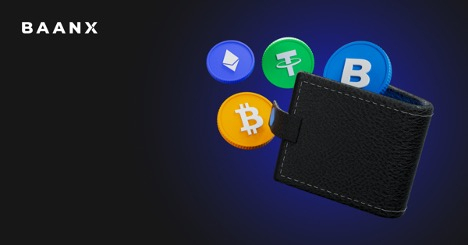
The term "wallet" has changed over the years. First made for storing fiat currencies, today, if one were to google "wallet," results for crypto wallets pop up.
With the industry going main stream, crypto wallets are also becoming popular among Web3 enthusiasts. Crypto traders rely on wallets to securely buy, store, and trade crypto while using it to track all their transactions and protect their data.
MetaMask is one of the best examples of a decentralized crypto wallet, with over 30 million monthly active users. Even exchanges like Binance or KuCoin are known for their centralized custodial wallets with millions of users.
However, with all these developments, one problem is prominent. Many people don't understand crypto wallets or how they work. Although used widely to transact between chains, only a tiny proportion of users know the underlying mechanics.
Crypto Wallets: How Do They Work?
Crypto wallets usually are of two types: software and hardware wallets. Though each kind works slightly differently, they are all meant to provide users safe access to whatever cryptocurrency they hold.
It's vital to note that a crypto wallet doesn't really 'store' any crypto. Instead, it stores the public and private key information required for crypto transactions. In simple terms, the asset is stored on a blockchain, which is a form of a digital ledger that underpins cryptocurrencies.
Public keys work in the same manner that a bank account number does. It is a lengthy string of randomly generated numbers that may be shared with a third party, such as a cryptocurrency exchange, without jeopardizing your wallet's security. This key enables you to receive cryptocurrencies in transactions, often via a wallet address, which is a compressed form of the wallet's public key.
On the other hand, private keys should be kept hidden at all times because these keys can be used to access a wallet's assets on the blockchain. Having access to private keys is equivalent to having access to the cryptocurrency in the wallet. Cold wallets and hot wallets store these private keys differently, leading to a significant change in how these two wallets work.
A cold wallet is a crypto wallet that keeps its private keys offline. This category includes but is not limited to hardware wallets, whereas a hot wallet stores its private keys online. MetaMask and TrustWallet are some examples of hot wallets.
Meeting the Rising Demand for Crypto Adoption
With blockchain and crypto going mainstream, crypto wallets are now rapidly evolving to meet the needs of consumers. Users are looking for a more secure way to store their crypto without limiting the usability of their assets. Hardware wallets have always been the go-to option for users to secure their assets offline and ensure that no one except them would be able to access their crypto, but this would often reduce or slow down the process of transacting with their crypto.
This is no longer the case, though, with fintech companies like Baanx providing its CL card for the leading hardware wallet company, Ledger, to make it easier for users to integrate their hardware wallets and crypto into their daily lives.
The CL card powered by Ledger brings some fantastic features to the users of Ledger Nano. For example, users will be able to seamlessly move their crypto between their wallet and their card using Ledger Live, get access to Cryptodrafts by Baanx and convert their crypto to fiat instantly at the time of purchase.
Solutions such as these are paving the way for users to transition from traditional fiat to using cryptocurrency to transact daily by removing the barriers between holding crypto securely and transacting with it seamlessly.
Crypto Wallets are the Gateway to Future
Fiat and banks have been the basis of global economies, but times have changed. Wallets were traditionally a tool to store fiat, but this has now changed to the norm being digital crypto wallets.
Crypto is slowly going mainstream with the steady fall in fiat usage, and crypto wallets are playing a significant role in on boarding new users into crypto and DeFi. In addition, Fintechs like Baanx are creating innovative solutions, which is further evidence of the path that DeFi is on. Fiat is being transitioned out, and using hardware wallets to store digital assets and transact with them securely seems to be the future.









